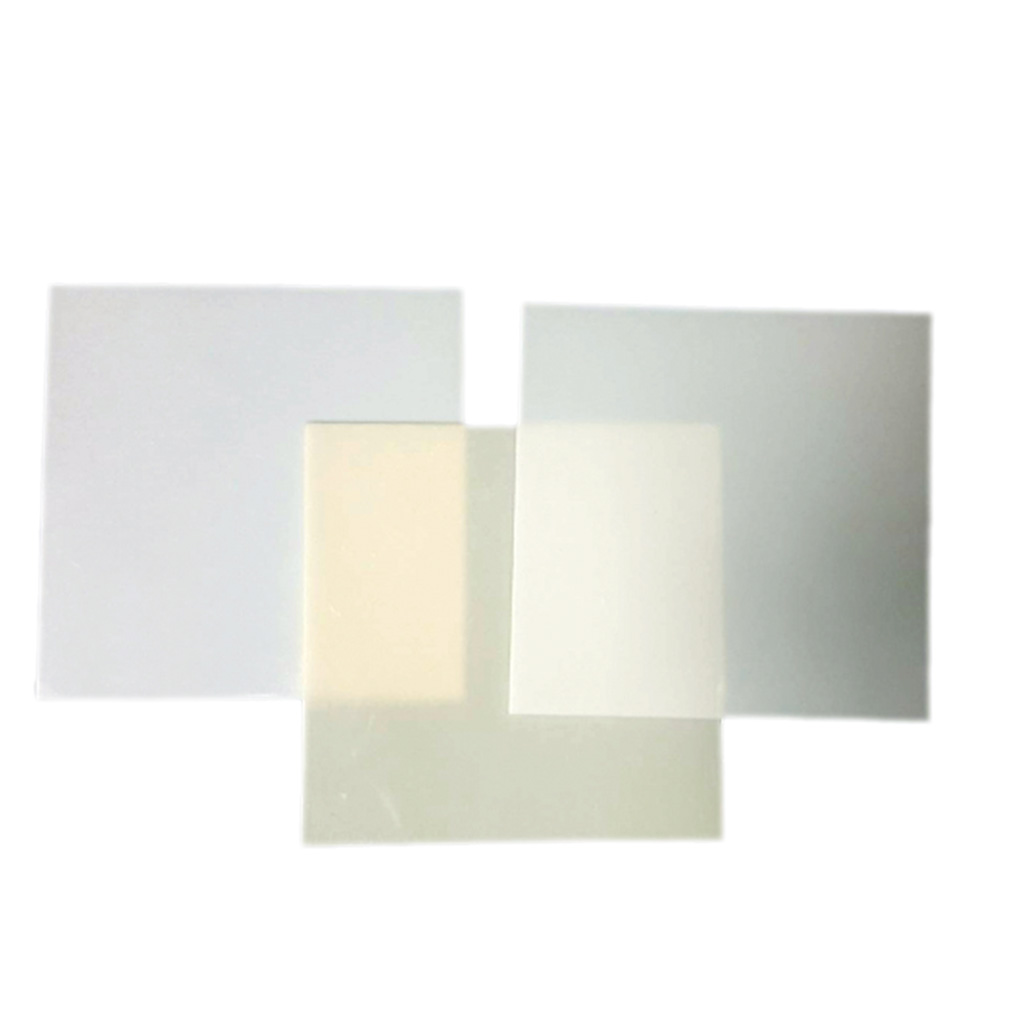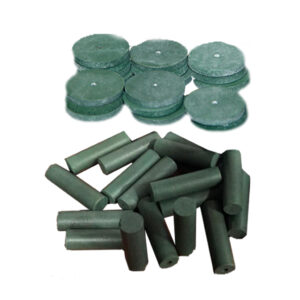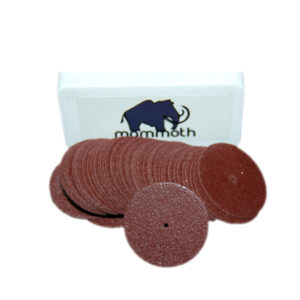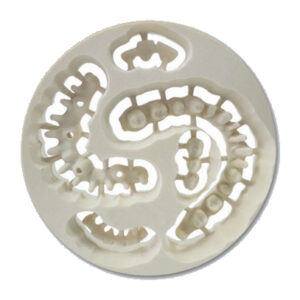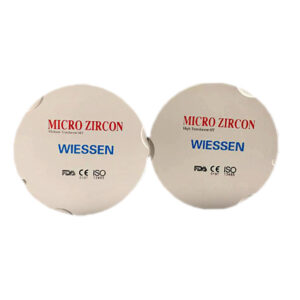Description
Available in :
*White dentin colors A1, A2, A3 and 0M1.
*Thickness from 0,60 mm to 1,00 mm.
*Wiessen sheetes-0M1, A1, A2 tooth-colored
* Ø 120 mm thickness 0.60 mm, 20 pcs.
*Thickness 1.00 mm, 20 pcs.
*Thickness 2.00 mm, 10 pcs.
*125 x 125 mm thickness 0.60 mm, 20 pcs
*Thickness 1.00 mm, 20 pcs
*Ø 125 mm thickness 0.60 mm, 20 pcs
*Thickness 1.00 mm, 20 pcs
Chemical characteristics:
PETG, co polyester • insulating foil: PE, polyethylene. Harmless to health, BgVV (Federal Health Office) listed thermoplastic with tested biocompatibility. Allergic reactions are improbable but cannot be excluded. Insoluble in water, inactive, harmless to ground water. Disposal/Recycling: General recycling for plastic/household waste. Field of use: (see brochure thermoforming technique and material card) Colusa splints, bruxism splints, stabilization splints, dressing plates, correction splints (aligners), cosmetically splints. Adjustment is possible with the Coliform (-3), by grinding or by addition. Material properties: Viscous hard foil. Extremely impact-resistant. Bonds to acrylate (Resilit-S, 817 501 + 817 503). Attention, sensitive to humidity: Immediately after having taken a plate reclose the aluminium bag and keep it closed. Finishing: (see brochure thermoforming technique) Finishing set Quick 2 (110 877), high polish will be obtained with polishes for plastic. The spacer foil will be taken off only after thermoforming and finishing. Moisten the area that has to be adjusted with acrylate at first with little monomer. Plasticization: Place the foil in the devices in such a way that the spacer/insulating foil is pointing towards the model. For machines without control: Test softness of foil with an instrument. If permanent impressions result, thermoform.
Instructions for professionals:
Instructions for cleaning and maintenance the appliances (splints) fabricated out of thermoforming materials should be cleaned and maintained as follows:
Best results are achieved with Oxides cleansing tablets for dental splints (280 030, Oxydens Clean-set, 280 032, 32 cleansing tablets). Further cleaning agents: Soap, curd soap, liquid soap and dish-washers. Do not use any strongly perfumed soap. Not suited are: tooth-paste (abrasives), mouth-wash (can cause discoloring) and water hotter than 50 °C (deformation). After use
Well wash with water.
With no Oxides at hand thoroughly clean the inner and exterior side of the splint with a tooth brush and soap
Again well wash with water.
Shake off the water or dry with a towel.
Never blow-dry – deformation
Very important: Allow the splint to completely dry! Keep at a dry place, at best in a box like the Erkobox (215 030) or Splintbox (214 020) that has aeration holes.
Again wash with water before using it.
Generation of bad smells:
If after some time the splint has adopted a strong smell, apply Oxydens or put the splint for one hour in a
Non-perfumed, concentrated soap solution, afterwards thoroughly wash with water. Such a soap sud
Removes most of the smell generating bacteries.
Discoloring:
Soft thermoforming materials have the tendency to discolor. This intake of color pigments can be
Reduced or avoided by a careful maintenance but it cannot be reversed. Mouth-washs and amalgam
Fillings can also cause discoloring.
Disinfection:
With the exception of Erkoloc and Erkoloc-pro all thermoforming materials can be disinfected with
Disinfection alcohol and other commercial liquids. wiessenoloc andwiessenoloc-pro have to be stored for app. 5
Hours at a dry place without any pressure on it after having contact with alcohol in order to ensure that
the alcohol can evaporate completely. Otherwise a bonding of the hard and soft layer is no longer guaranteed
Sterilization:
Sterilization with gas and plasma (< 50 °C) is possible. As a result of the thermo ability the materials
are not autoclavable
Dear Patient,
The material out of which the splint has been fabricated can for health reasons not been provided with additives that prevent discoloring
Possible discoloring are neither harmful to health nor to material and result from certain bacteria that Belong to the oral flora, from micro bleedings in the area of the movable gingiva, from some solvents for
mouthwashs, from some filling materials and from UV radiation (for ex. Sunlight )).
The appliances (splints) fabricated out of thermoforming materials should be cleaned and maintained as Follows:
Best results are achieved with Oxydens cleansing tablets for dental splints.
The cleansing tablets are particularly adapted to dental splints, remove plaque and mineral deposits,
bad smells and prevent discolouring. It is recommended to use the practical Oxydens Clean-set for a hygienic use and storage.
(Oxydens Clean-set: 280 030, 32 tablets, 1 Clean-box, 1 Clean-cup)
Dental splints can alternatively also be cleaned with conventional soap, curd soap and liquid soap. Do
not use any strongly perfumed soaps.
Not suited are cleaning solutions that contain alcohol (possibly swelling) and tooth paste (contains
abrasive particles), mouth-wash (possibly discolouring) and water that is hotter than 50 °C (deformation).
Recommendation:
Prior to insertion clean the teeth and wash the splint with water.
After use of the splint well wash it with water and use Oxydens according to the instructions.
If Oxydens is not at hand thoroughly clean the inner and exterior side of the splint with a toothbrush and soap. Again well wash with water. Shake off the water or dry with a towel.
Never blow-dry – deformation!


